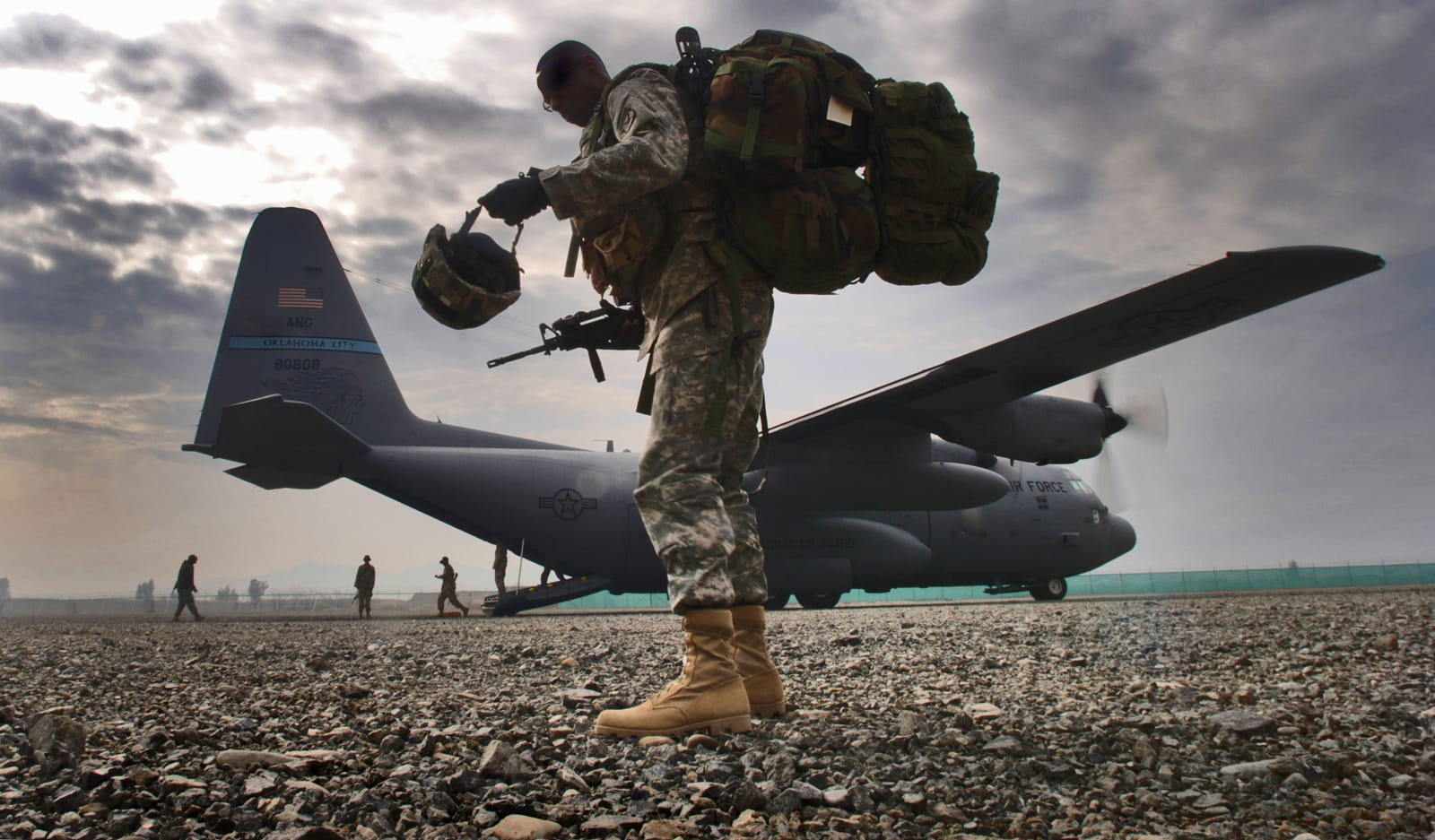Discreet, high-stakes negotiations between Washington and the Taliban burst into public view last week when US President Donald Trump declared that America was “trying” to regain control of Bagram Airbase in Afghanistan.
Bagram was quietly abandoned in the weeks leading up to the chaotic US withdrawal from Afghanistan in 2021 as the Taliban swept into Kabul.
Trump described the base not only as a lost military asset but as a strategic vantage point to monitor China, underscoring how US ambitions in Afghanistan remain tied to wider geopolitical rivalries.
“One of the biggest airbases in the world, we gave it to them for nothing. We’re trying to get it back, by the way. That could be a little breaking news,” Trump told reporters at a joint press conference with British Prime Minister Keir Starmer. He linked the demand directly to Beijing, saying: “One of the reasons we want the base is it’s an hour away from where China makes its nuclear weapons.” He warned the Taliban: “If Afghanistan doesn’t give Bagram back to those that built it, the United States of America, bad things are going to happen.”
Less than 50 miles from Kabul, Bagram has long been central to foreign campaigns in Afghanistan. Built by the Soviets in the 1950s, it served as their main hub during the Soviet–Afghan war. After 2001, it became the largest US installation in the country – capable of hosting thousands of troops, heavy aircraft, and detention facilities. Its location, near key highways and passes into Central Asia, gave it unmatched strategic value. For the Taliban, its capture after the US withdrawal in August 2021 was both a military windfall and a symbolic victory.
Trump’s remarks raise a question that goes beyond nostalgia for American power projection: could Washington realistically regain access to Bagram?
The record suggests otherwise. The 2020 Doha Agreement, struck under Trump, promised a US withdrawal in exchange for Taliban commitments on terrorism. It said nothing about future access to bases like Bagram. When US troops left in 2021 during the Biden administration, they abandoned billions in equipment, some of which the Taliban later displayed from the base itself.
Since then, the Taliban have been explicit: no foreign troops. Spokesman Zabihullah Mujahid has urged Washington to adopt “realism and rationality,” citing the Doha Agreement’s pledge that the United States would not threaten Afghanistan’s territorial integrity. Taliban defence officials, such as Chief of Staff Fasihuddin Fitrat, have flatly ruled out surrendering territory, calling Bagram “out of the question.”
For the Taliban, holding Bagram is proof of victory, while for Washington, reclaiming it would require concessions or risks far greater than the base itself is worth.
The Taliban’s confidence reflects both their military control and their new international partnerships. Russia has moved closer, granting the group legitimacy by welcoming their diplomats. China has deepened economic engagement, signing energy and mining deals and eyeing infrastructure projects near Bagram’s region. With these ties, the Taliban have little incentive to trade away sovereignty for US favour.
For Washington, the base’s strategic logic is clear. From Bagram, the United States could oversee counterterrorism operations, track regional militancy, and monitor Chinese and Russian activity. But the operational feasibility of returning is slim. Militarily seizing Bagram would mean re-invasion, with all the troop deployments, logistics, and costs that toppled three empires before. Diplomatically, the price would be high: recognition of Taliban rule, lifting of sanctions, or large-scale aid – concessions that are potentially toxic in Washington.
History also cautions against optimism. From the British retreats of the 19th century to the Soviet defeat in the 1980s and the US exit in 2021, foreign powers have learned the same lesson: Afghanistan cannot be held without local consent.
Bagram’s strategic importance is unquestionable, but in Afghan politics, symbols matter as much as runways. For the Taliban, ceding the base would be a humiliation, undermining the sovereignty they fought to reclaim.
Trump’s call, then, seems more rhetorical than practical. It signals a desire to reassert US influence in a region increasingly shaped by Chinese and Russian engagement. It may also be a way of further prodding the record of the Biden administration. But the Taliban’s rejection, coupled with their international backing, makes a negotiated return highly unlikely. The alternative – military force – would be prohibitively costly and politically untenable.
In the end, Bagram represents the tension between American strategic desire and Afghan political reality. It is valuable ground, but no longer US ground. For the Taliban, holding it is proof of victory; for Washington, reclaiming it would require concessions or risks far greater than the base itself is worth. Trump’s blunt remarks highlight the enduring allure of Afghanistan as a geopolitical prize – but also the stubborn truth that history, geography, and Afghan resistance still constrain even the most powerful of foreign actors.
